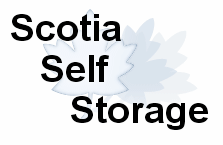Helpful Storage Tips
Packing & Storing
- • Use pallets/skids if possible to keep contents off the floor.
- • Store items you may need to access at front of unit.
- • Rubbermaid bins make excellent moisture-resistant storage containers.
- • Wrap or box everything important to protect from dust and dirt.
Furniture
Cover all furniture and disassemble if possible. Lay down blankets between the furniture and the floor. Place table tops down with legs pointing towards the ceiling.
Appliances
Ensure appliances are defrosted and empty of water. Prop refrigerator doors slightly open to prevent odour build-up.
Prohibited Items
Hazardous
Fuels, fireworks, poisons, aerosols, and chemicals.
Living Things
No animals or plants are allowed in storage units.
Perishables
Food items that can rot or attract vermin.
A Note on Insurance
We recommend contacting your home insurance provider to inquire about a rider for items in storage. Insurance can protect you against fire, floods, and accidental damage beyond just theft.

